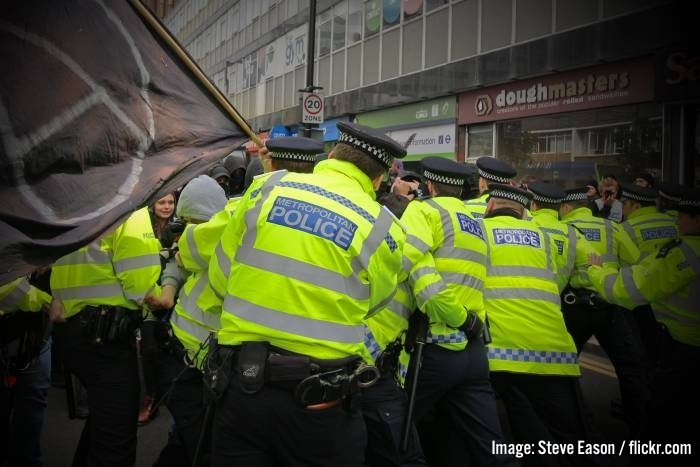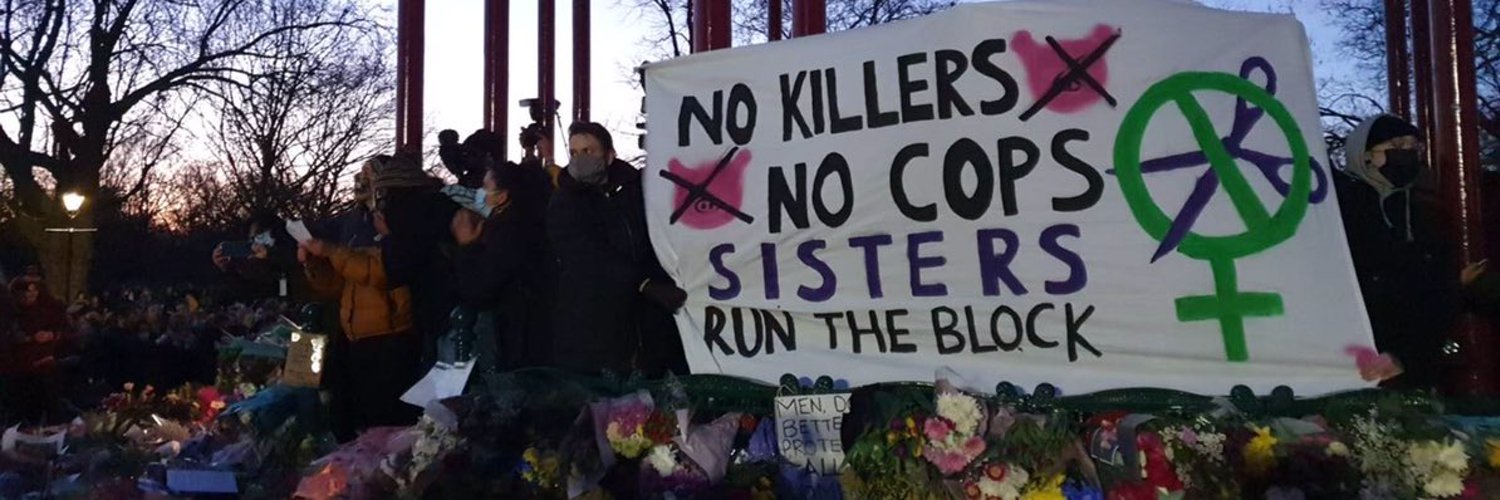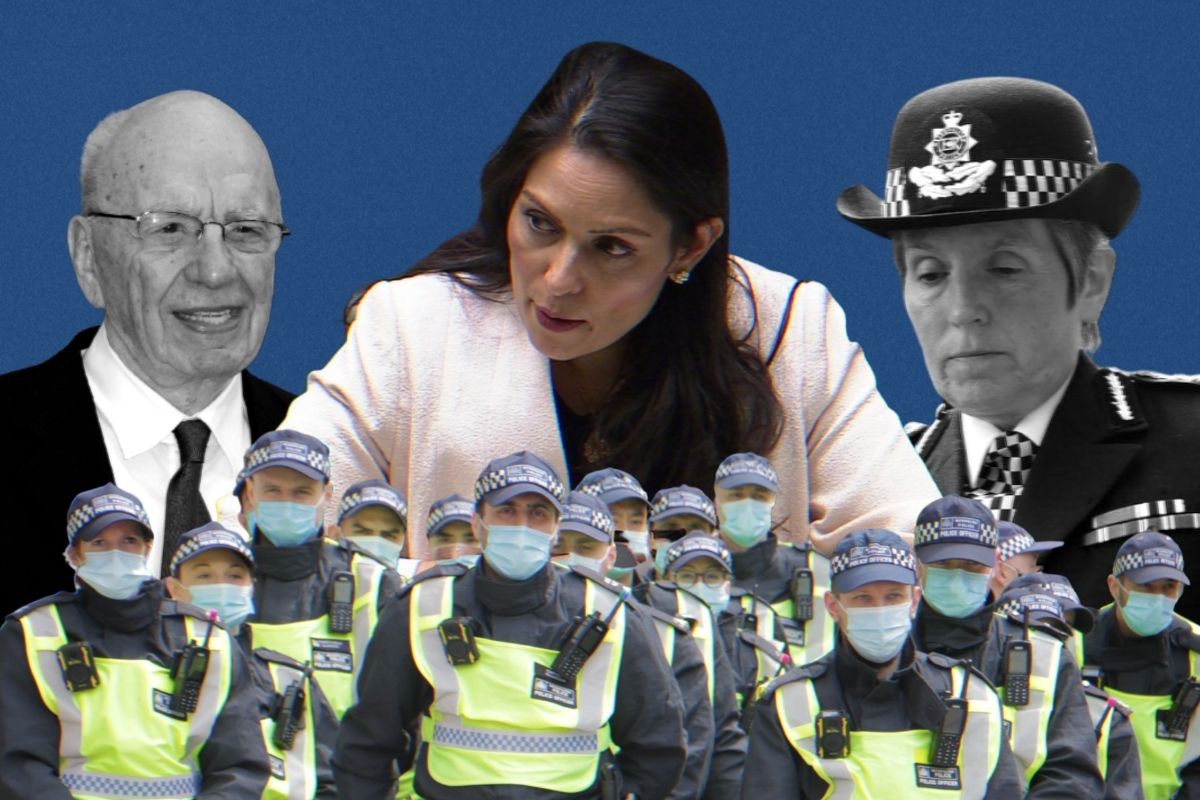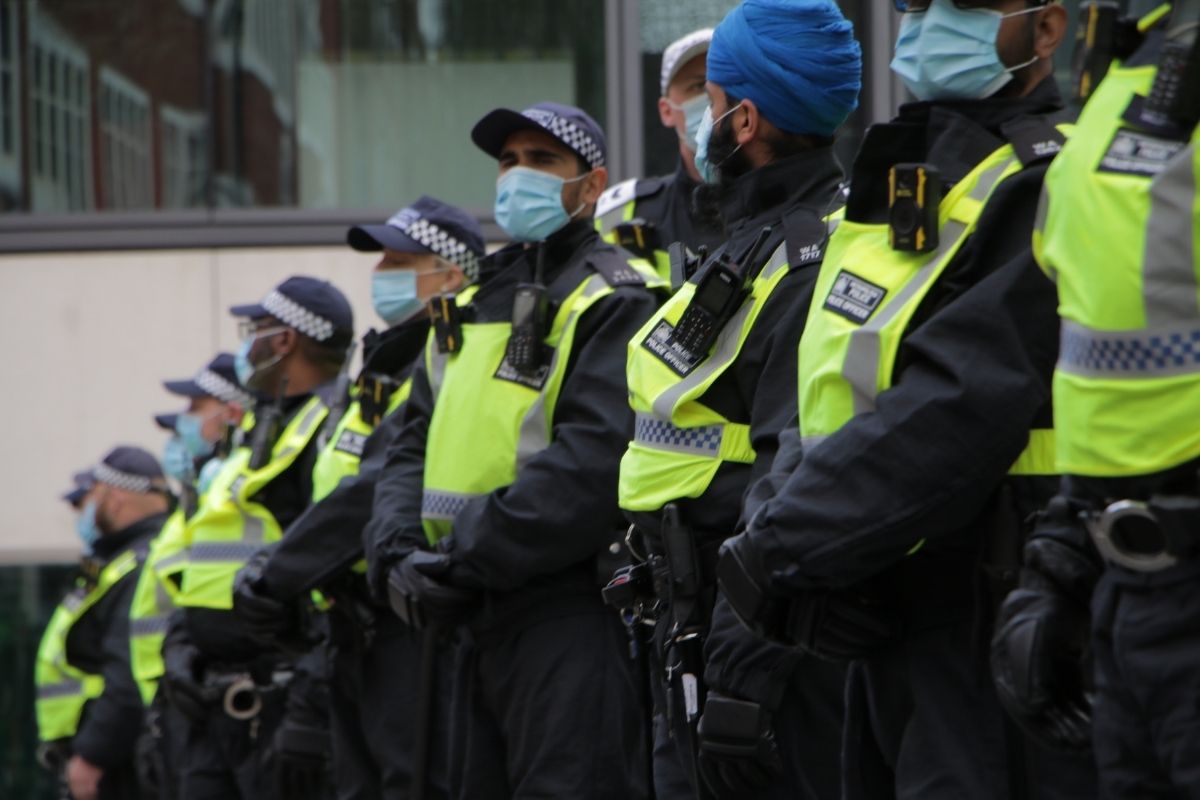The Tory government has provoked anger amongst police officers by freezing their pay. This reveals the depth of the crisis facing the ruling class, as explosive pressures accumulate within society, and as workers move into struggle.
Last month, the Police Federation of England and Wales, representing rank-and-file police officers, overwhelmingly voted no confidence in the home secretary, Priti Patel. Their statement declared that the government “cannot be trusted”.
The vote took place after the Tories announced that officers earning £24,000 or more would have their pay frozen. With inflation increasing, this is a real-terms pay cut.
It has really come to something when even the police, the attack dogs of the establishment, come out against the government.
Gathering storm
 Priti Patel will be left wondering how much she can rely on officers to police strikes and demonstrations against pay cuts, when those same officers have no-confidenced her for that very reason.
Priti Patel will be left wondering how much she can rely on officers to police strikes and demonstrations against pay cuts, when those same officers have no-confidenced her for that very reason.
This time last year, a government-commissioned report said that poverty, joblessness, inequality, the health crisis, and hostility towards the police are creating the perfect storm for civil unrest and rioting – just as was seen a decade ago with the riots that swept across Britain in the wake of the police murder of Mark Duggan.
The removal of COVID restrictions might provide the ruling class with some temporary breathing space. But as capitalism lurches from one crisis to the next, this mood of anger will return – intensified, and on a higher level.
The Tories have shattered police morale, cut their pay, and will soon be sending them to face off against workers and youth expressing the exact same rage that many police officers are now feeling.
This is a blunder by the Johnson government. Boris’ most infamous predecessor, Margaret Thatcher, made it one of her first acts upon becoming prime minister to increase police pay by 45%. She knew that big battles between the ruling class and the working class were coming, for which she needed the reliable support of the police.
Johnson and Patel are faced with the same – if not greater – risk of social unrest and class struggle. But they have chosen this moment to cut police pay and incur the wrath of officers. This will not be comforting to those elements of the British establishment who see Johnson as an unreliable loose cannon.
Hammer and the anvil
 Whichever way the Tories turn, they’re in trouble. The huge economic crisis sparked by the pandemic has seen government debt skyrocket. Last year, UK government borrowing reached 14.5% of GDP – the highest level ever outside of a war.
Whichever way the Tories turn, they’re in trouble. The huge economic crisis sparked by the pandemic has seen government debt skyrocket. Last year, UK government borrowing reached 14.5% of GDP – the highest level ever outside of a war.
Despite previous assurances promising the ‘end of austerity’, the reality is that the bill for the coronavirus crisis is now being presented. And this means that the government is forced to try and reduce public spending wherever it can.
But in their efforts to re-establish some economic stability, the Tories are introducing a huge source of social instability: the loss of police confidence in the government.
In short, Boris Johnson and his ministers are caught between the hammer blows of economic crisis, and the anvil of social unrest.
Starmer’s stupidity
Notice of the pay freeze was accompanied by announcements designed to reassert the Tories as the ‘Party of Law and Order’, including the reintroduction of what Johnson termed “fluorescent-jacketed chain gangs” of minor offenders picking up litter.
This is the latest in a grotesque bidding war between the Tories and Keir Starmer to see who can best appease the reactionary press through chest-beating and posturing on the issue of crime.
Back in May, Starmer asserted that “a vote for Labour is a vote for law and order”. He wants to see more prosecutions and more money for the police.
What Starmer doesn’t understand is that, while ordinary people don’t want to live in fear of crime, they have little confidence in the police to deal with it. According to YouGov polling in May 2021, 44% of people have little or no confidence in the police to deal with crime. Among young people under 24, this figure increases to 53%.

The Black Lives Matter movement and the murder of Sarah Everard have highlighted the racism and sexism that is intrisic within the police, and that has fuelled the distrust towards this arm of the state. This mood is part of the general anger that exists against the rich, the bosses, and the politicians.
Instead of connecting with this mood among working-class people, Starmer has set himself up against it. He chases approval from the capitalist press for his Tory-lite policies, when Labour should be campaigning for crime to be tackled by alleviating poverty, providing free education, and investing in housing, healthcare, and rehabilitation programmes.
State in crisis
 Millions of workers and young people have no confidence in the police. The police have no confidence in the government. The government does not have the confidence of important sections of the British ruling class.
Millions of workers and young people have no confidence in the police. The police have no confidence in the government. The government does not have the confidence of important sections of the British ruling class.
The situation is a precarious one for the establishment. The conditions for an offensive by the labour movement are favourable.
With correct strategy and determined leadership, we could successfully topple this criminal government, and fight for socialist policies to defend workers and youth. This is what we should prepare for now.






